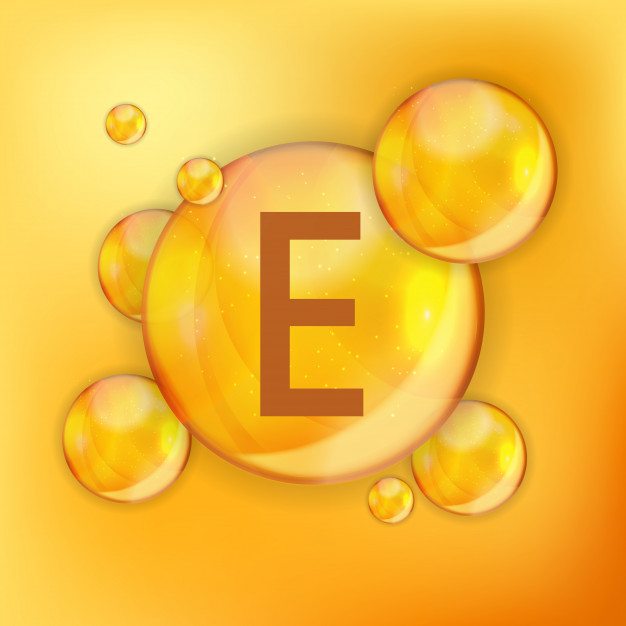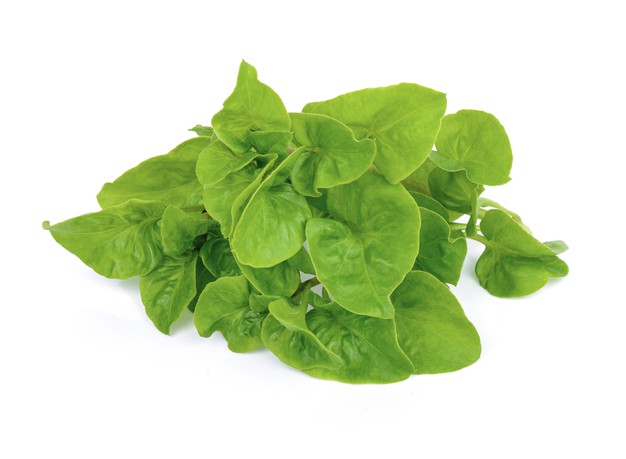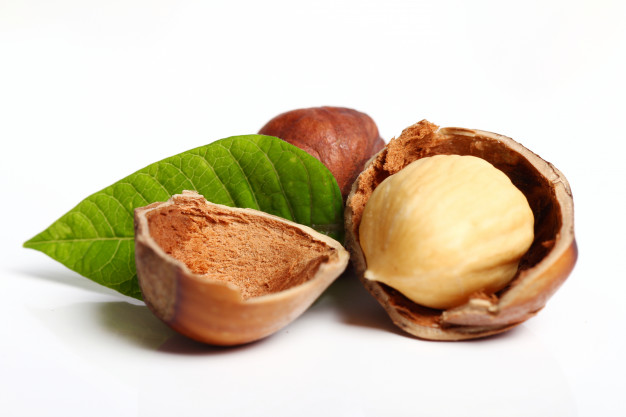Lipoic acid is an important organic compound that exerts potent antioxidant activities. It plays vital role in promoting the metabolic process of body and helps in energy production. It offers various other health benefits as well.
Chemistry
- Lipoic acid is an organosulfur compound, obtained from octanoic acid
- It has the general formula of C8H14O2S2
- It is solid in nature
- It is yellow in colour
- Body requires lipoic acid for aerobic metabolism
What is the difference between lipoic acid and alpha lipoic acid?
Natural form of lipoic acid is generally termed as R lipoic acid, whereas, alpha lipoic acid is a form of lipoic acid that contains 50% natural and 50% of unnatural lipoic acid
How does lipoic acid work in body?
Body mainly utilizes lipoic acid for energy purposes. It is associated with breaking down carbohydrates and makes energy available for other organs that support them to perform in an effective manner.
Sources
Human body can synthesize alpha lipoic acid but in smaller amounts thus it is better to consume lipoic acid from diet or supplements for optimizing its intake.
Below list will give an overview of foods, which are rich in lipoic acid –

- Red meat
- Organ meat especially liver and kidney
- Spinach
- Broccoli
- Yeast, mainly brewer's yeast
- Brussels sprouts
- Tomatoes
- Peas
- Potatoes
- Carrots
- Yams
- Rice bran

Health benefits
Antioxidant activity
- It exerts strong antioxidant activity that helps to lessen the risk of developing degenerative diseases by preventing oxidative stress
- It helps to react with reactive oxygen species (ROS) thus helps to neutralize them as a result it helps to spare various important biological substances of the body (like DNA, RNA, proteins, lipids) from oxidative damages that ultimately help to maintain the structure as well as functions of these respective biological substances
- It has seen that ROS has been implicated in the progression of neurodegeneration, carcinogenesis, ageing, atherosclerosis, diabetes etc. As lipoic acid is responsible for decreasing the concentration of ROS in body hence it helps to delay the progression of above stated conditions and promotes well being
- It helps to prevent lipid peroxidation too
Anti-inflammatory activity
- It plays significant role in decreasing the concentration of inflammatory mediators especially the level of C reactive protein in body thus helps to prevent inflammation
- It also helps to prevent swelling as well as pain
- Individual suffer from chronic inflammatory diseases like arthritis or gout or rheumatism or asthma or allergy or autoimmune disease should include lipoic acid in their diet for early recovery

Role on nervous system
- It helps to promote the functionality of both central nervous system and peripheral nervous system
- It also helps to sustain the functionality of nerve cells by protecting them from oxidative damages hence reduces the susceptibility of developing neurological disorders
- It plays significant role in delaying the progression of carpal tunnel syndrome, which is characterized by tingling sensation or numbness especially in hand. It has seen that taking lipoic acid especially alpha lipoic acid before or after surgery for carpal tunnel syndrome significantly improves the rate of recovery
Role on skin
- Its antioxidant activity is closely related with preventing ageing
- It has seen that application of cream containing lipoic acid on skin is associated with incorporating the lipoic acid within the inner layer of skin and helps to protect the skin from the harmful effect of UV radiation by offering antioxidant protection
- Lipoic acid also helps to increase the concentration of glutathione, which is another important antioxidant that helps to protect the skin from oxidative damages and reduces the risk of developing skin disorders
- It is very effective for reducing the prevalence of wrinkles, acne, dryness of skin etc

Other health benefits
- It exhibits chelate activity especially for iron as well as for copper
- It helps to improve vascular function as well
- It acts as cofactor for various mitochondrial enzymes and helps in the catalysis of alpha keto acid
- It is also associated with increasing the activity of other antioxidant like CoQ10 or glutathione, which help to fight against several degenerative diseases

Disease preventing role of lipoic acid
Diabetes mellitus
- Diabetes mellitus is a metabolic disorder generally characterized by elevated blood sugar level and it should be treated properly otherwise it may develop various health hazards like vision loss, renal disorders, cardiac problems etc
- Lipoic acid is considered as one of the most effective therapeutic substance for diabetic patients as it significantly helps to reduce blood glucose concentration
- It helps to reduce insulin resistance, which is recognized as the main hypoglycemic feature of lipoic acid
- It also helps to increase the activity of insulin by reducing fat percentage in muscle cells, which acts as a barrier to insulin
- It helps to reduce the level of HbA1C as well as fasting blood sugar
- Its consumption is also associated with reducing several diabetic complications
- It significantly reduces the prevalence of diabetic neuropathy as it is related with improving the functions of neurons in diabetic patients

Cardio vascular disease
- It has seen that it plays important role in reducing aortic expression of adhesion molecules and also decreases aortic accumulation of macrophages as well as pro-inflammatory cytokines that ultimately help to decrease the concentration of triglyceride and LDL in body. On a contrary it is associated with increasing the level of HDL. This phenomena is responsible for decreasing the risk of developing atherosclerosis
- Its antioxidant activity is also accountable for decreasing oxidative stress, which is considered as one of the leading cause of cardio vascular diseases
- It has seen that its consumption is extremely beneficial for reducing the prevalence of ischemic heart disease, angina pectoris, strokes, heart attacks and myocardial infraction
Hypertension
- It plays significant role in promoting endothelial functions and also exerts vasodilatory activity, which is closely related with enhancing blood circulation that ultimately helps to decrease hypertension
- It has seen that hypertension is related with increasing the synthesis of several inflammatory biomarkers. As lipoic acid helps to decrease the level of inflammatory biomarkers thus it should be provided to hypertensive patients for improving their symptoms

Memory loss
- Its antioxidant activity plays vital role in delaying the progression of Alzheimer’s disease, which ultimately helps to prevent memory loss
- It helps to decrease the concentration of free radicals in body that helps to prevent the oxidative damages of brain cells thus promotes their activity that also helps to improve cognition as well as memory
- It is also associated with preventing neural inflammation that also helps to improve the symptoms of memory loss related disorders
Obesity
- It plays imperative role in preventing obesity
- It helps to increase the catabolic rate of the body thus increases energy expenditure that ultimately facilitates weight reduction
- Its hypolipidemic effect also helps to decrease total fat percentage of the body and significantly reduces visceral fat
Risk factors
Lipoic acid, especially alpha lipoic acid has very little or no side effects thus it is considered as safe for most of the people but in some cases it has seen that some people have experienced mild health complications while consuming lipoic acid like nausea, stomach discomfort, acid reflux, itching, rashes etc.

Source:
Andrea Moura, F., Queiroz de Andrade, K., Celia Farias dos Santos, J. and Oliveira Fonseca Goulart, M., 2015. Lipoic acid: its antioxidant and anti-inflammatory role and clinical applications. Current Topics in Medicinal Chemistry, 15(5), pp.458-483.
Haghighatdoost, F. and Hariri, M., 2019. The effect of alpha-lipoic acid on inflammatory mediators: A systematic review and meta-analysis on randomized clinical trials. European journal of pharmacology, 849, pp.115-123.
Koufaki, M., 2014. Therapeutic applications of lipoic acid: a patent review (2011–2014). Expert opinion on therapeutic patents, 24(9), pp.993-1005.
Kucukgoncu, S., Zhou, E., Lucas, K.B. and Tek, C., 2017. Alpha‐lipoic acid (ALA) as a supplementation for weight loss: results from a meta‐analysis of randomized controlled trials. Obesity reviews, 18(5), pp.594-601.
Rochette, L., Ghibu, S., Richard, C., Zeller, M., Cottin, Y. and Vergely, C., 2013. Direct and indirect antioxidant properties of α‐lipoic acid and therapeutic potential. Molecular nutrition & food research, 57(1), pp.114-125.
Salehi, B., Berkay Yılmaz, Y., Antika, G., Boyunegmez Tumer, T., Fawzi Mahomoodally, M., Lobine, D., Akram, M., Riaz, M., Capanoglu, E., Sharopov, F. and Martins, N., 2019. Insights on the use of α-lipoic acid for therapeutic purposes. Biomolecules, 9(8), p.356.
Tromba, L., Perla, F.M., Carbotta, G., Chiesa, C. and Pacifico, L., 2019. Effect of alpha-lipoic acid supplementation on endothelial function and cardiovascular risk factors in overweight/obese youths: a double-blind, placebo-controlled randomized trial. Nutrients, 11(2), p.375.









